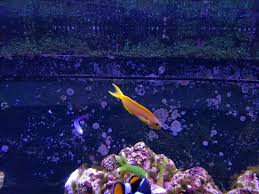Dragons (龙, lóng) hold a sacred and dominant position in Chinese mythology, folklore, and religious beliefs. Unlike the fearsome, destructive dragons found in Western traditions, Chinese dragons are celestial beings associated with wisdom, power, and harmony. Their presence is deeply intertwined with the divine, often serving as messengers, symbols, or incarnations of gods in traditional Chinese spirituality.

Throughout centuries, Chinese mythology and religious practices have portrayed dragons as companions to the gods, rulers of natural elements, and protectors of humanity. They are linked to Heaven, Earth, and Water, acting as intermediaries between mortals and divine forces. This article explores the relationship between dragons and Chinese deities, focusing on their roles as divine servants, celestial rulers, and manifestations of cosmic order.
Dragons as Celestial Beings in Chinese Mythology
1. The Origin of Dragons in Chinese Cosmology
Chinese mythology often attributes the creation of the universe to divine forces, and dragons are closely linked to this cosmic order. Some myths suggest that dragons existed before the formation of the world, embodying the primordial forces of nature.
The earliest references to dragons appear in ancient texts such as the Classic of Mountains and Seas (山海经, Shānhǎi Jīng) and Zuo Zhuan (左传), where they are described as heavenly creatures governing the elements. The association between dragons and divine rule stems from their ability to manipulate water, wind, and celestial forces, making them crucial figures in mythology.
2. Dragons as Messengers of the Gods
In Chinese tradition, dragons often serve as divine messengers, carrying out the will of higher deities. They appear in various religious texts as intermediaries who convey heavenly mandates, bring prosperity, and maintain balance in nature.
For example:
- The Azure Dragon (青龙, Qīng Lóng), one of the Four Celestial Beasts, is a divine guardian representing the East and Spring, serving as a spiritual protector in Taoism and Buddhism.
- Dragons were believed to deliver rain at the command of heavenly gods, ensuring a good harvest and maintaining harmony between Heaven and Earth.
These roles highlight their divine status, positioning them as powerful entities connected to gods and the natural order.
The Relationship Between Dragons and Major Chinese Deities
1. The Jade Emperor (玉皇大帝, Yù Huáng Dà Dì) and His Dragon Guardians
The Jade Emperor, the supreme ruler of Heaven in Taoist mythology, is closely associated with dragons. As the ultimate divine authority, he is often depicted riding a golden dragon or surrounded by dragon imagery, symbolizing his celestial power.
Key connections between dragons and the Jade Emperor include:
- The Dragon Kings (龙王, Lóng Wáng): These four powerful dragon deities serve under the Jade Emperor, controlling the seas and rainfall. They act as his enforcers, ensuring that water-related natural events follow the divine plan.
- Heavenly Dragons: Many legends describe dragons as the Jade Emperor’s messengers, sent to deliver divine decrees, bless emperors, or punish those who defy the natural order.
2. The Four Dragon Kings: Rulers of Water and Weather
The Dragon Kings of the Four Seas (四海龙王, Sì Hǎi Lóng Wáng) are among the most significant dragon deities in Chinese folklore. Each Dragon King governs one of China’s four great seas:
- Ao Guang (敖广) – Dragon King of the East Sea
- Ao Qin (敖钦) – Dragon King of the South Sea
- Ao Run (敖闰) – Dragon King of the West Sea
- Ao Shun (敖顺) – Dragon King of the North Sea
These dragon deities are responsible for:
- Controlling rainfall and floods to maintain balance in nature.
- Protecting seafarers and fishermen from storms.
- Punishing those who offend the gods by unleashing droughts or floods.
The Dragon Kings frequently appear in Chinese literature, including the classic novel Journey to the West, where the East Sea Dragon King, Ao Guang, interacts with Sun Wukong (the Monkey King).
3. Nuwa (女娲) and the Cosmic Dragon Connection
Nuwa, the goddess of creation, is sometimes depicted with dragon-like features, reinforcing the connection between dragons and divine beings. As the creator of humanity, Nuwa is said to have used her dragon-like tail to mend the broken sky, restoring order to the cosmos.
This myth highlights dragons as symbols of creation and renewal, linking them directly to the divine forces that shape the universe.
4. Fuxi (伏羲): The Dragon-Body God of Civilization
Fuxi, the god of civilization, is another deity with dragon-like characteristics. Often depicted with a serpent or dragon tail, he is credited with creating:
- The Eight Trigrams (八卦, Bā Guà), which form the foundation of Taoist cosmology.
- The first fishing nets and hunting techniques, advancing human civilization.
His dragon-like form suggests that dragons embody wisdom, cultural progress, and the divine guidance of humanity.
5. The Yellow Emperor (黄帝, Huáng Dì) and His Dragon Ancestry
The Yellow Emperor, a legendary figure in Chinese history, is believed to be the ancestor of the Chinese people and is often associated with dragons.
- He is said to have ridden a dragon to ascend to Heaven, signifying his divine status.
- His banner and imperial robes were adorned with dragon symbols, reinforcing the idea that emperors ruled with the Mandate of Heaven.
The Yellow Emperor’s dragon lineage further strengthens the connection between dragons, rulers, and divine authority in Chinese culture.
Dragons as Divine Protectors and Symbols of Cosmic Order
1. The Azure Dragon (青龙, Qīng Lóng) and the Four Symbols
The Azure Dragon is one of the Four Celestial Beasts (四象, Sì Xiàng) that guard the cardinal directions in Taoism and Chinese astronomy. Representing the East, Spring, and growth, this dragon is:
- A protector against evil forces, often depicted on temple roofs and warrior armor.
- A symbol of renewal, as it is linked to the rejuvenation of life in springtime.
As a guardian deity, the Azure Dragon plays a crucial role in maintaining cosmic balance.
2. Buddhist Dragon Guardians (Nāgas in Chinese Buddhism)
In Chinese Buddhism, dragons are often equated with Nāgas, serpent-like deities in Indian tradition. Nāga-dragons in Chinese Buddhist texts:
- Protect sacred scriptures and temples from desecration.
- Summon rain for monks and farmers, emphasizing their role as divine benefactors.
- Appear in stories of Buddha, such as the tale of a dragon king sheltering the Buddha from a storm.
This Buddhist influence further cements dragons as spiritual protectors with divine connections.
Conclusion: The Everlasting Divine Role of Dragons in Chinese Culture
Dragons in Chinese mythology are not merely mythical creatures—they are divine beings, cosmic regulators, and protectors of humanity. Their association with gods such as the Jade Emperor, the Dragon Kings, Nuwa, and Fuxi highlights their role in shaping the world, ensuring order, and guiding rulers and common people alike.
Even today, dragons remain a powerful spiritual symbol in Chinese culture, representing divine wisdom, protection, and celestial authority. Whether in temples, festivals, or imperial history, their presence continues to reinforce the deep connection between dragons and the divine forces that govern the universe.

Leave a Reply